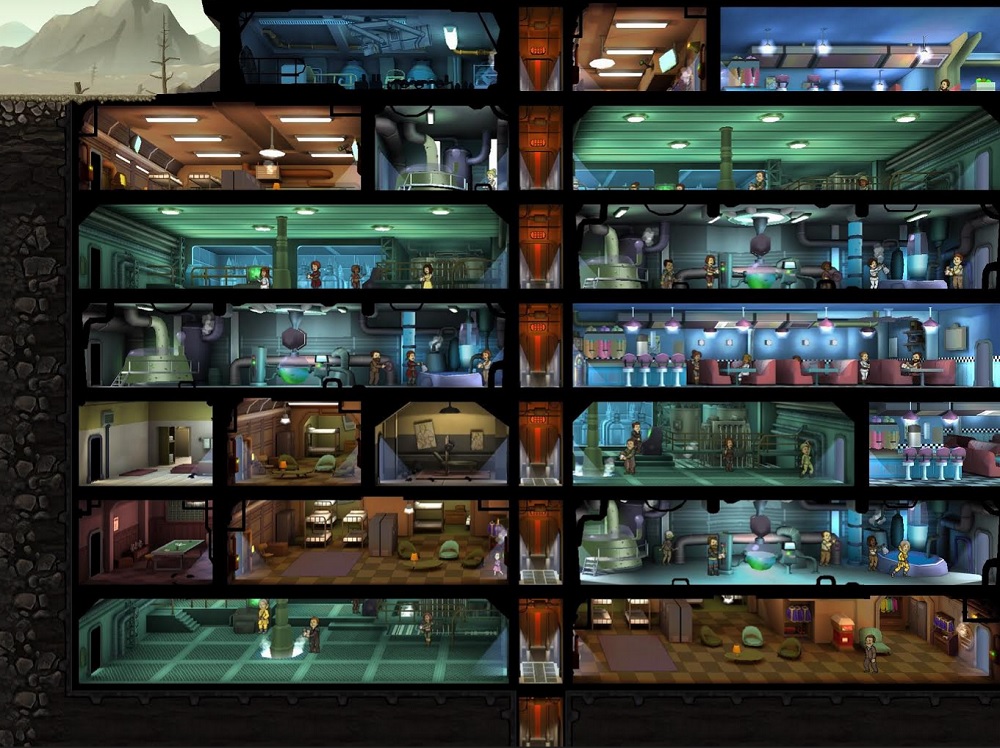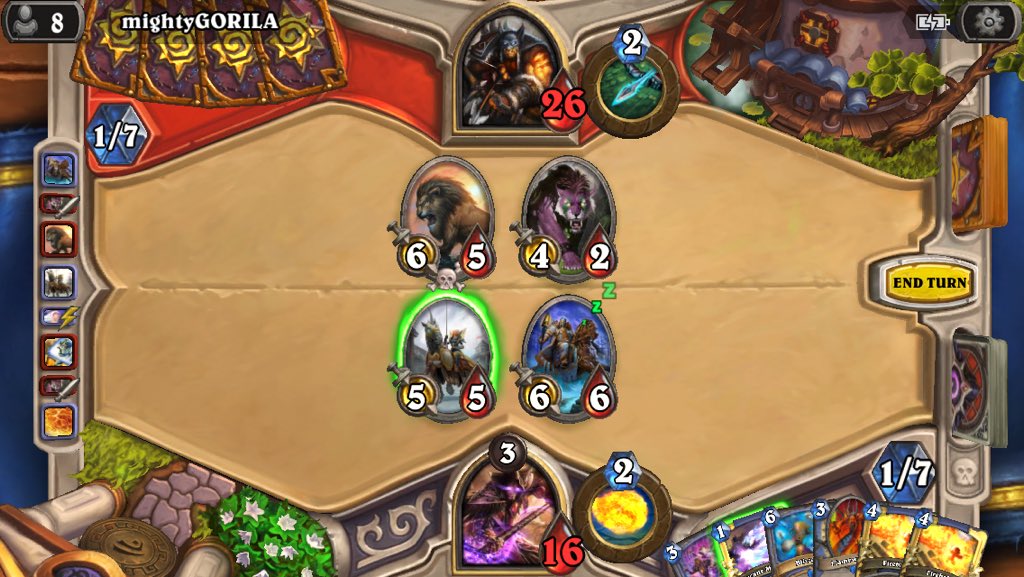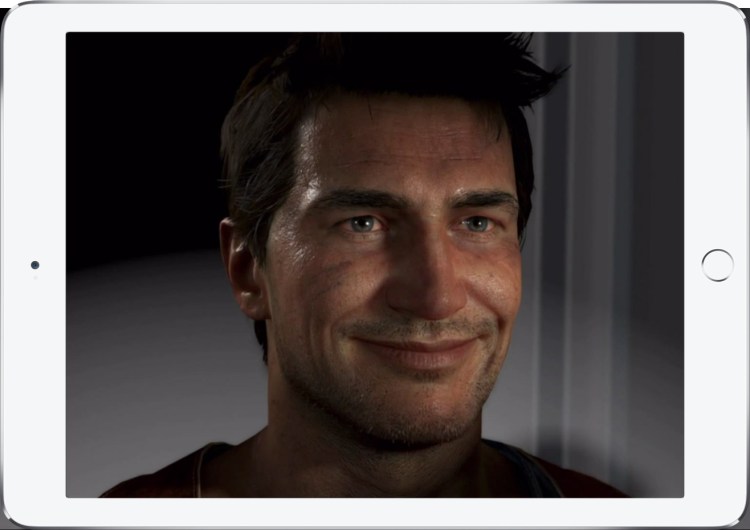We already knew that Sony Computer Entertainment was shifting to Sony Interactive Entertainment (SIE) in April, but now the company has revealed it is also starting a new mobile-gaming division.
ForwardWorks Corporation is a Sony subsidiary that will “deploy new services toward the ever-expanding smartdevice market” beginning April 1. Unlike SIE, ForwardWorks will keep its headquarters in Tokyo as it begins planning and developing iOS and Android content. We’ve seen traditional Japanese gaming companies like Konami, Bandai Namco, and even Nintendo chase down the lucrative Japanese gaming market, which has the highest average revenue per player in the world for both Apple and Google devices. Sony doesn’t want to let the $34.8 billion mobile-gaming market grow without getting a piece of it for itself.
But Sony has previously tried to make a move into smartphones with its PlayStation Mobile initiative, and mobile gaming isn’t exactly an easy market to crack. In Japan, two games — Puzzle & Dragons and Monster Strike — make around up to 80 percent of all revenue. Worldwide, games like Clash of Clans and Candy Crush Saga have dominated the top-grossing charts since late 2012.
With all these factors in play, GamesBeat has decided to come together for a roundtable discussion about why Sony is moving ahead with ForwardWorks and how this new company could succeed or fail.
Jeffrey Grubb, GamesBeat reporter
Sony has to do this, right? It’s a publicly traded company with a successful gaming business. What is it supposed to say to its investors — especially in Japan — when they ask why it doesn’t have “something like Monster Strike?”
At the same time, PlayStation 4 has succeeded specifically because Sony has gone so aggressively after a “hardcore” audience. I don’t know if any of the things that makes PS4 work will translate to making iPhone apps. ForwardWorks says it will use PlayStation properties, so I’m expecting we’ll get an Uncharted card battler or League of Legends clone by the end of the year. But I just don’t think that’s going to win over the crowd Sony already has in its corner.
Stewart Rogers, VentureBeat researcher
Yes, Sony has to do something.
According to Newzoo, mobile gaming will be a $34.8 billion marketplace in 2017 and is an ever-increasing portion of the overall games market. Mobile will consume over one-third of the global games market in 2017.
Where Sony has a lead over other companies — especially in Japan and Asia where the rules of success are similar to other regions but include some unique cultural differences — is in its properties. The top 10 mobile games in Japan, for example, share many traits. They are single-touch, making them easy to use and play. They have regular community-driven events that drive competition and inclusion. And they have two key features in which Sony already excels: console to mobile and character inheritance — giving a permanently mobile audience the chance to carry on playing their favorite console-based characters on the move. Those last two almost guarantee an instant community, so if they succeed in making a well-balanced, event-driven game that uses Sony characters, it could be a big success.
But this is also a big risk. Most games — even from big publishers — fail in today’s app economy. Half of all mobile games revenue reportedly comes from only 0.19 percent of players. One thing can be guaranteed, however. If Sony passes on mobile, it will fail 100 percent of the time. Like a lottery, you can’t win it if you’re not in it.
Jason Wilson, GamesBeat managing editor
PlayStation Mobile was a failure, even in Japan. The problem Japanese console game companies are dealing with today isn’t that the homeland isn’t buying their games … it’s that Sony and Nintendo won’t accept this reality. They continue to worry and fuss over this one market, walling off or delaying games that would perform better in North America and in Europe to cater to the homeland.
I see diving back into mobile as Sony’s latest attempt to save face in Japan. But if it does aim its mobile games for the home audience, it’s going to fail everywhere else. Japan’s mobile scene really is an island, and the games that succeed there are not succeeding anywhere else.

Above: My Vault in Fallout Shelter has some dead bodies in it.
Mike Minotti, GamesBeat community manager and reporter
Really, this is easy money for Sony. I don’t expect Sony to create blockbuster, console-like experiences for mobile, but it can do well by just exploiting its known brands. I imagine it’ll take a similar approach to Fallout Shelter, a game that a lot of hardcore players tried simply because of the Fallout name, even though it relied on a lot free-to-play tropes that many core players hate. Sony can do the same thing with Uncharted, God of War, and more.
I don’t think it signals anything bigger than an attempt to make a little extra cash in a lucrative market. This move into mobile won’t impact Sony’s role in conventional gaming.
Dean Takahashi, GamesBeat lead writer
I agree that Sony has to do this if it wants to be the market leader in gaming. Worldwide gaming is a $90 billion market (according to Digi-Capital). A third of that is mobile, and it is the fastest growing part of the market. The console portion is around $25 billion, and it is not growing (part of the reason is that Nintendo flubbed its last console). There are a billion-plus users of mobile devices in the world, and all of them are potential gamers. Half the revenue in mobile comes from games, and the most engaging apps on mobile are games. Sony has to participate or risk losing control over players, even the hardcore ones who are spending more time with mobile devices.
Sony is late to this party. It failed with PlayStation Mobile, but that’s not a reason to stay out of the market today. When Sony tried PlayStation Mobile, the market wasn’t as big, the best practices weren’t worked out, and the key developers weren’t really identified yet. In Sony’s home market of Japan, where console sales are dropping, newcomers like Gree, Gumi, and DeNA emerged. Companies like Konami and GungHo are doing well. Nintendo has just entered the mobile market for the first time. And Japanese players are spending a lot per game. As Sony moves into the Japanese market, it will have to be careful to come up with the right content. But plenty of rivals can now show it the way. And Sony’s gaming brands will give it a leg up in brand awareness for its mobile games.

Above: Clash Royale from Supercell.
I also don’t think Sony has gone far enough. Mobile-first game companies like Supercell, King, and Machine Zone have dominated the top-grossing charts. Sony should learn from them. Those companies have gone global, and Sony should as well. It can do so through acquisitions, particularly as mobile gaming suffers a pause in investment and falling valuations. The Chinese are buying a lot of mobile game companies, and the Chinese are going global. Sony’s little step into the Japanese market should be very focused. But Sony should also start mobile gaming operations in the rest of the world. It’s a global market, and you can never tell where the best talent will come from.
Lastly, the success of titles like Clash Royale and Fallout Shelter, which appealed to hardcore gamers, should encourage Sony to move into mobile games. Hardcore gamers are clearly thirsty for this kind of content.
Grubb
I just can’t help but think of arcade gaming when I look at today’s mobile gaming. Home gaming was convenient, but it was also inherently more respectful than an arcade cabinet that had to use every trick in the world to maximize the average revenue it was getting from its players. Mobile gaming is a mutant offspring of that kind of thinking. It is a dark science where big-data experts deploy mental tricks to convince people to part with their money over and over. I do think that’s opposed to traditional gaming where developers try to do everything they can do make you feel like their product is deserving of the money you have already handed over.

Above: Hey — how did Mysterious Challenger end up on a Mage’s board?
None of that is to say that Sony shouldn’t make a move into the mobile space. I just have concerns about the long-term viability of the kind games that Supercell and others make. Clearly players are spending money on iOS and Android, but I think that Sony (and Nintendo) should be looking to do something closer to Blizzard and Hearthstone. Sony can take its well-known properties and use mobile to reach different kinds of people. I bring up Hearthstone because Blizzard has held back on “monetizing” every aspect of that game with “fun pain” and lock timers. The company that made World of Warcraft understands that it could make a lot more from Hearthstone, but it’s not trading short-term gains for the respect of its fans. If Sony looks to emulate that instead of chasing Supercell, Mixi, and GungHo, I think it has a better chance of succeeding.
VentureBeat's mission is to be a digital town square for technical decision-makers to gain knowledge about transformative enterprise technology and transact. Learn More

